Fidelis Ebenyi looks hastily into the open compound and makes his way inside through the backdoor. The compound and homes around it are deserted. Everywhere is quiet and the chirping of birds can be heard from a distance. Stalls at a local market opposite Ebenyi’s compound have keys and padlocks fastened to them. A farmer works on farmland a few meters away and intermittently looks around him before continuing work on the ridges.
Ebenyi, 35, had just visited his family home in Ndiagu Orie, a rustic village in Umuogudu-Akpu community, Ohaukwu LGA of Ebonyi state, after a bloody attack on March 10, 2020.
There has been a growing boundary crisis between his community and Agila, a town in Ado LGA of Benue state which shares boundaries with Ebonyi in the east. More than 10 people, including his mother Elizabeth Ebenyi, were killed in the latest attacks.
Elizabeth, 60, had gone to a nearby stream to fetch water in the morning when armed men invaded the community of about 1,000 farmers and local artisans. Ebenyi who witnessed the incident tells TheCable that sounds of gunshots rang in different directions in the community.
Advertisement
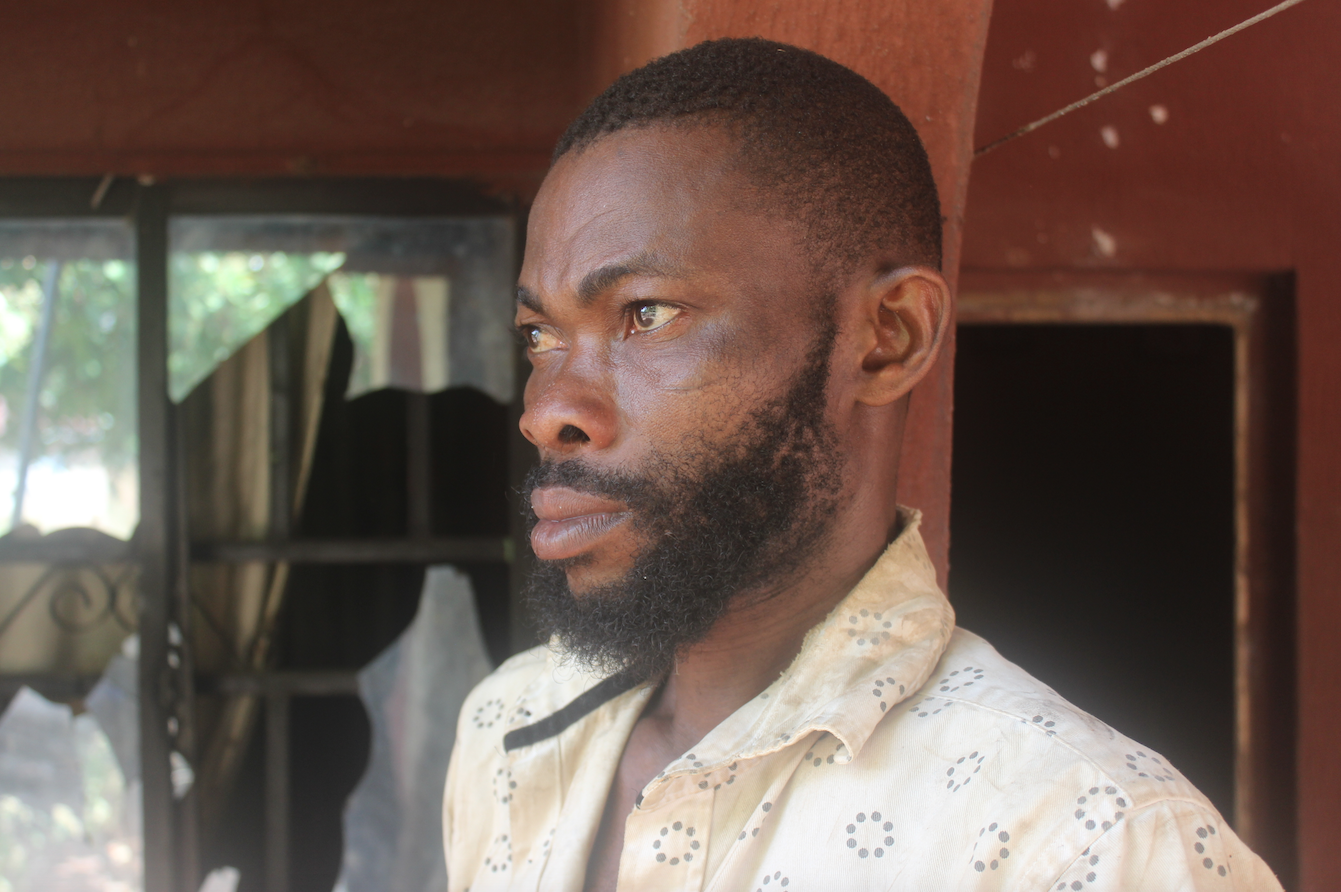
“They started killing everyone including traders who were going to the market,” Fidelis said while describing the gory scenes after the attacks. “Each person they kill, they would decapitate the person too.”
His mother was caught by a bullet and died on the spot. Fidelis adds that three more corpses were found close to his mother’s.
“Immediately we heard the sound of the gun, everybody began running away because we do not have any weapon of our own to fight them,” says Ebenyi who was at the balcony in front of his compound when the attackers invaded.
Advertisement
His mother is not the only family member he has lost to a communal clash. Five years ago, his elder brother was killed during a clash with the Agila people.
Ebenyi’s father was at home during the attacks but escaped through the back door. Ebenyi says he was lucky as the attackers had broken into their home with guns and machetes. When they couldn’t find anyone, they destroyed properties and razed buildings.
When the news of his wife came to him, Ebenyi’s father took ill and has not been able to walk ever since.
“He was deeply traumatised and affected by her killing,” Ebenyi says. “First, he lost his son and now his wife to this same land issue. I and my brothers have been the ones taking care of him since that time.”
Advertisement
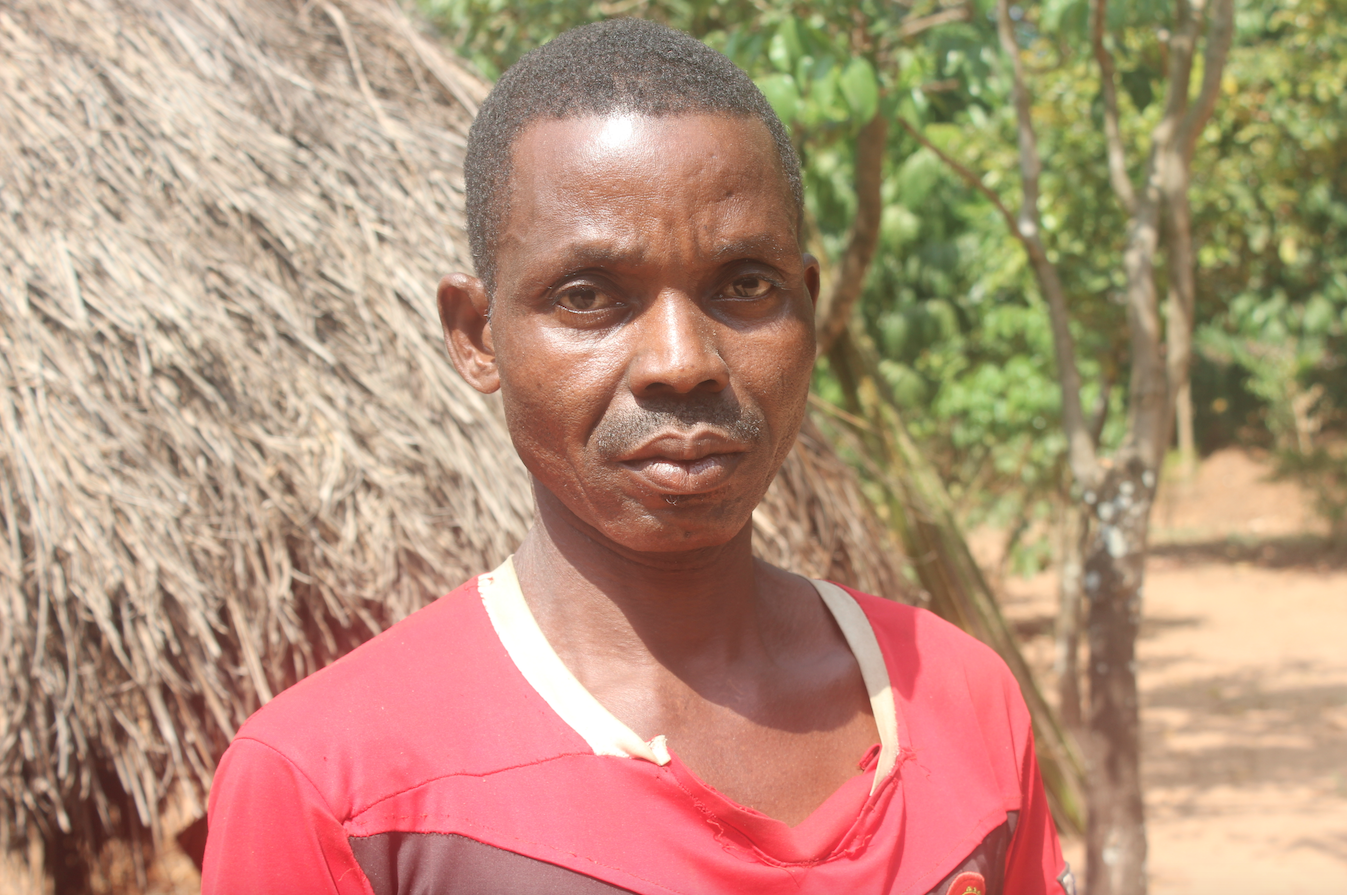
Nduka Egbe, 38, lives some meters away from Ebenyi’s compound. He was at the farm the day the attackers from Agila came. Currently, his home is deserted and the neighbours have either been killed or fled and never returned home.
“My heart is heavy right now because what happened that day is too much,” Nduka says. “If you look around, you would see that there is no one here at all.”
Nduka had made the risky decision to return to the village with his wife and two children — after initially escaping to the city. He tells TheCable that he had come to harvest some crops from his farm so they could find what to eat.
“I don’t know if they want to kill us all that day but God helped us to escape and survive because they killed some of my neighbours,” says Nduka who had just returned from the farm.
Advertisement
Nduka’s compound is within close proximity to the property previously occupied by his neighbours. But everywhere looks deserted. No one can be seen around except for Nduka and his family.
“At the other house over there, they killed two people,” he says, pointing to a semi-detached building that had been razed.
Advertisement
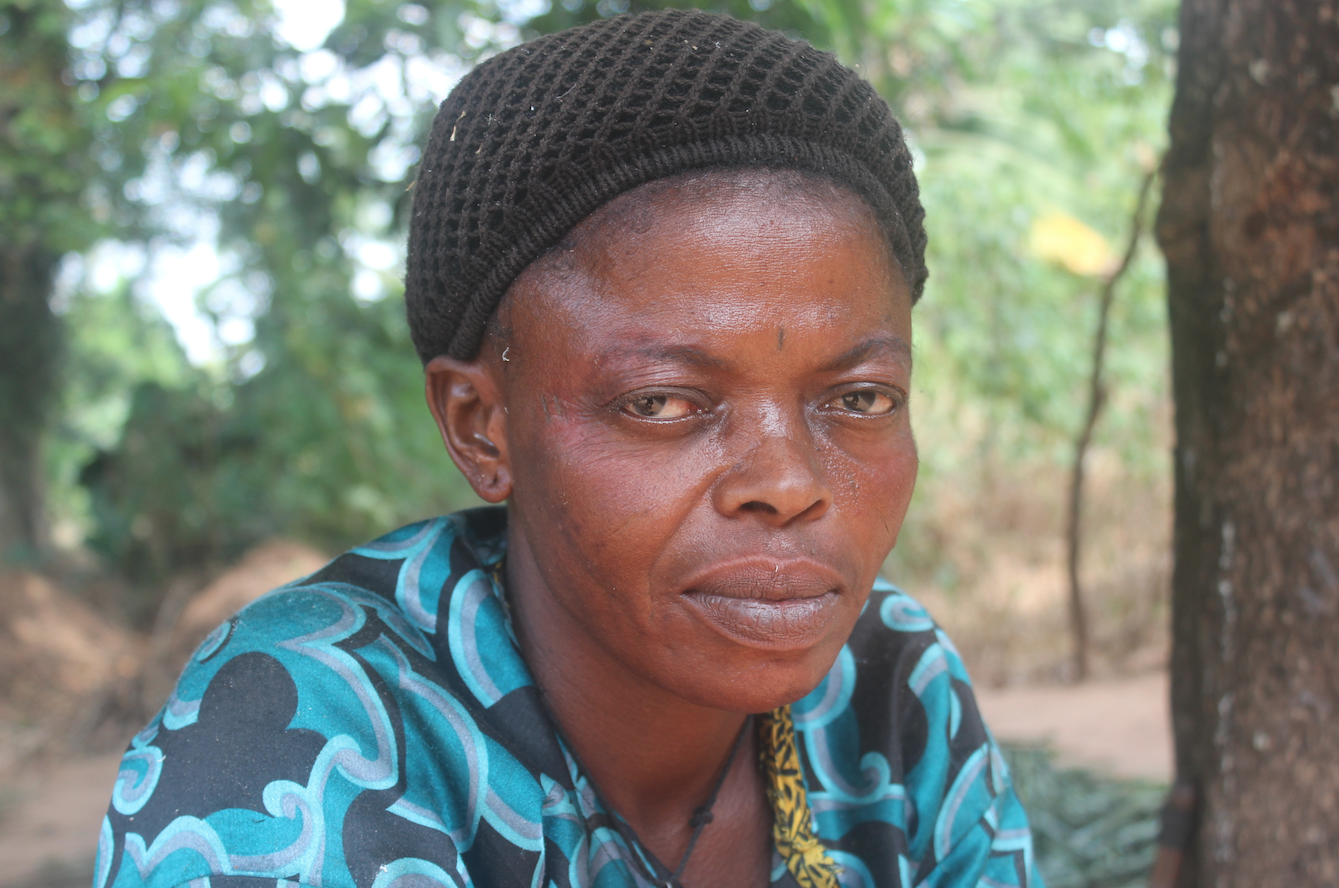
Under a mango tree in front of his compound, Egbe’s wife, Roseline, sits on a wooden bench and peeling the bark of cassava with two of her children.
Roseline, 36, says she doesn’t feel safe but had to join her husband so they could find food for the family. The mother of four says she was at home the day the attacks happened while her children had gone to school.
Advertisement
“We heard gunshots and we all began to run for safety,” she recalls. “My husband and the children later joined us where we were taking refuge with our relatives in the city.”
With evening approaching and the sun beginning to set, Roseline adds: “We would be leaving soon before it gets dark… I am not happy with this crisis between us and Agila people because a lot of people have been killed including my neighbours.”
Advertisement
DECADES OF BLOODY RIVALRY
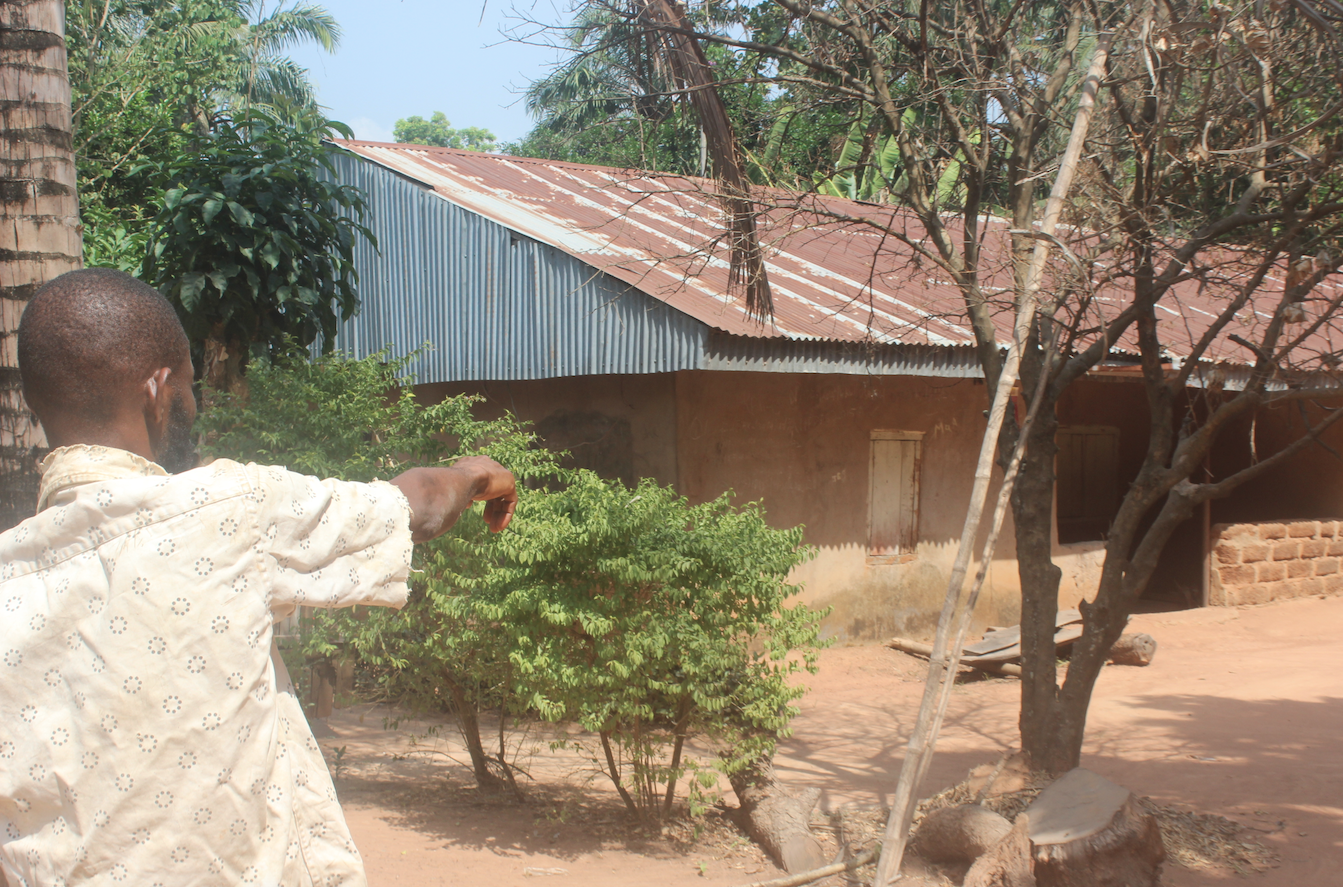
Ebenyi was not yet born when the fight between his village and Agila started. Locals tell TheCable that the communities have been engaging in a bloody communal crisis since the 1920s. Hundreds of people have been killed, homes razed, farmlands and crops destroyed while thousands have been displaced and deserted their homes to join relatives in the city or moved to makeshift IDPs camps set up by the government.
His community is not isolated in the inter-communal crises in the state. Across the state, several communities are in crisis over parcels of land or disputing border areas with neighbouring states. Currently, communities in Abia and Cross River states are engaged in bloody clashes over boundary and land disputes. Residents have been killed or displaced and homes destroyed.
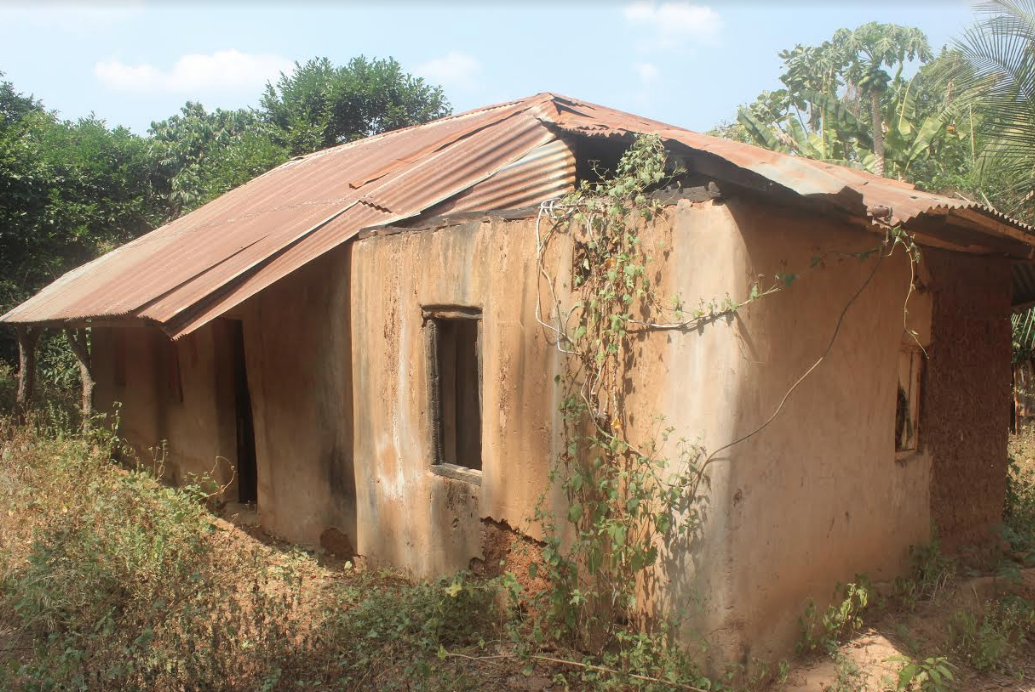
Government interventions, through military or police response or calls for dialogue and mediation, have been little and unable to pacify warring communities.
Even within the state, intra-communal crisis exists and has led to the loss of lives, properties and mass displacements. For more than two decades, Ezza-Ezillo communities have engaged in bloody guerilla warfare over land disputes. Before now, the two bloodline communities had lived peacefully, did trade together, and inter-married.
SHOT IN THE LEG
Emmanuel Nwaogiji lives with his two wives and 15 children in Igbeagu, another farming community in Izzi LGA. In 2017, he escaped death by the whiskers when he was shot in the leg by armed invaders from neighbouring Cross River state following a fallout between his community and surrounding villages.
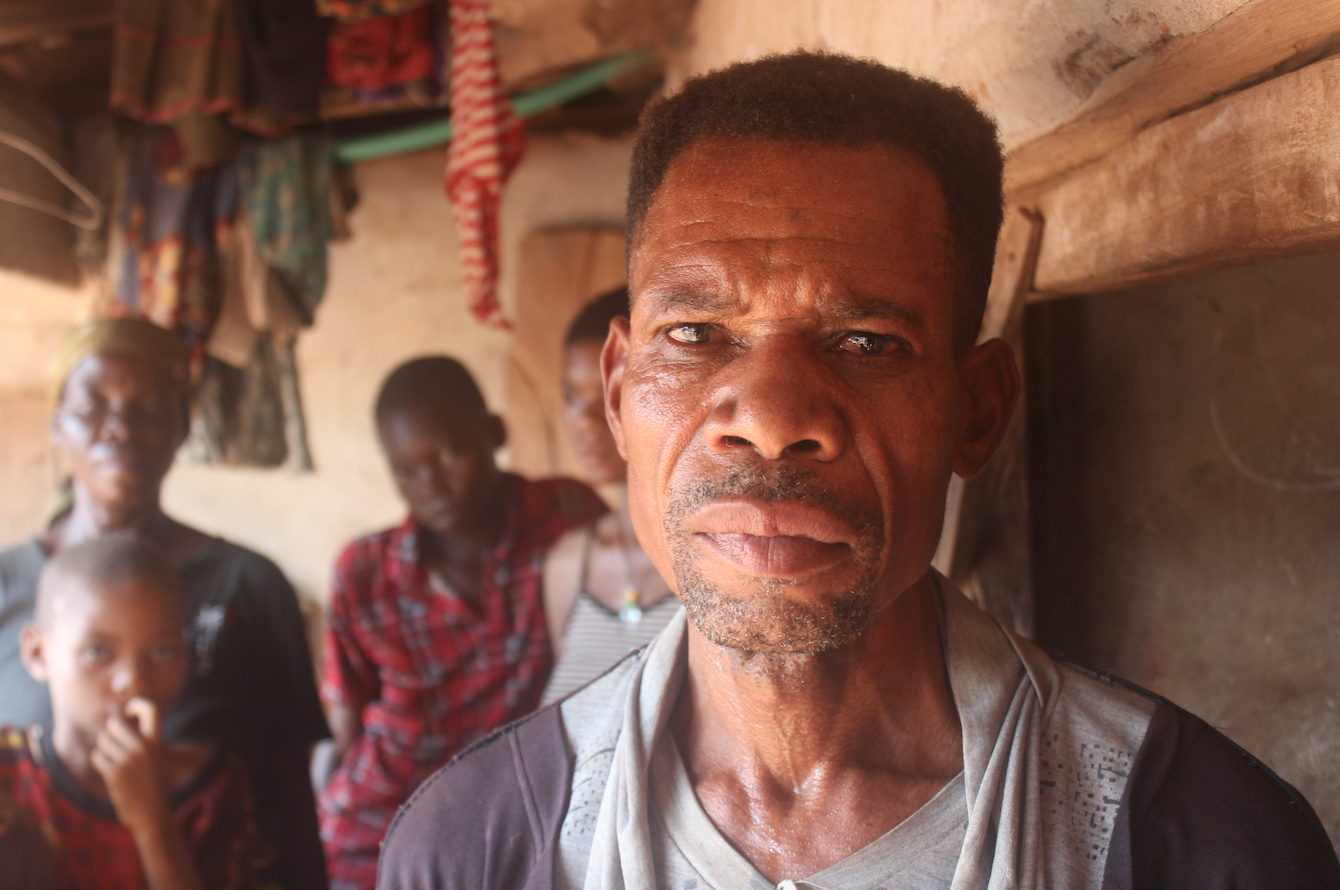
“They began setting houses ablaze when they came but I tried to escape and got shot in my leg,” Nwaogiji recalls.
He was taken to the hospital in Abakaliki, capital of Ebonyi, where he was treated for his injuries. The following year, Nwaogiji’s relative, Chinedu, who was 20 at the time, was not so lucky — as he was killed during an invasion.
Since 2005, Nwogiji’s community has been in a border tussle with their neighbours in Cross River. Many locals have been killed, with hundreds displaced and properties destroyed in the wake of the attacks.
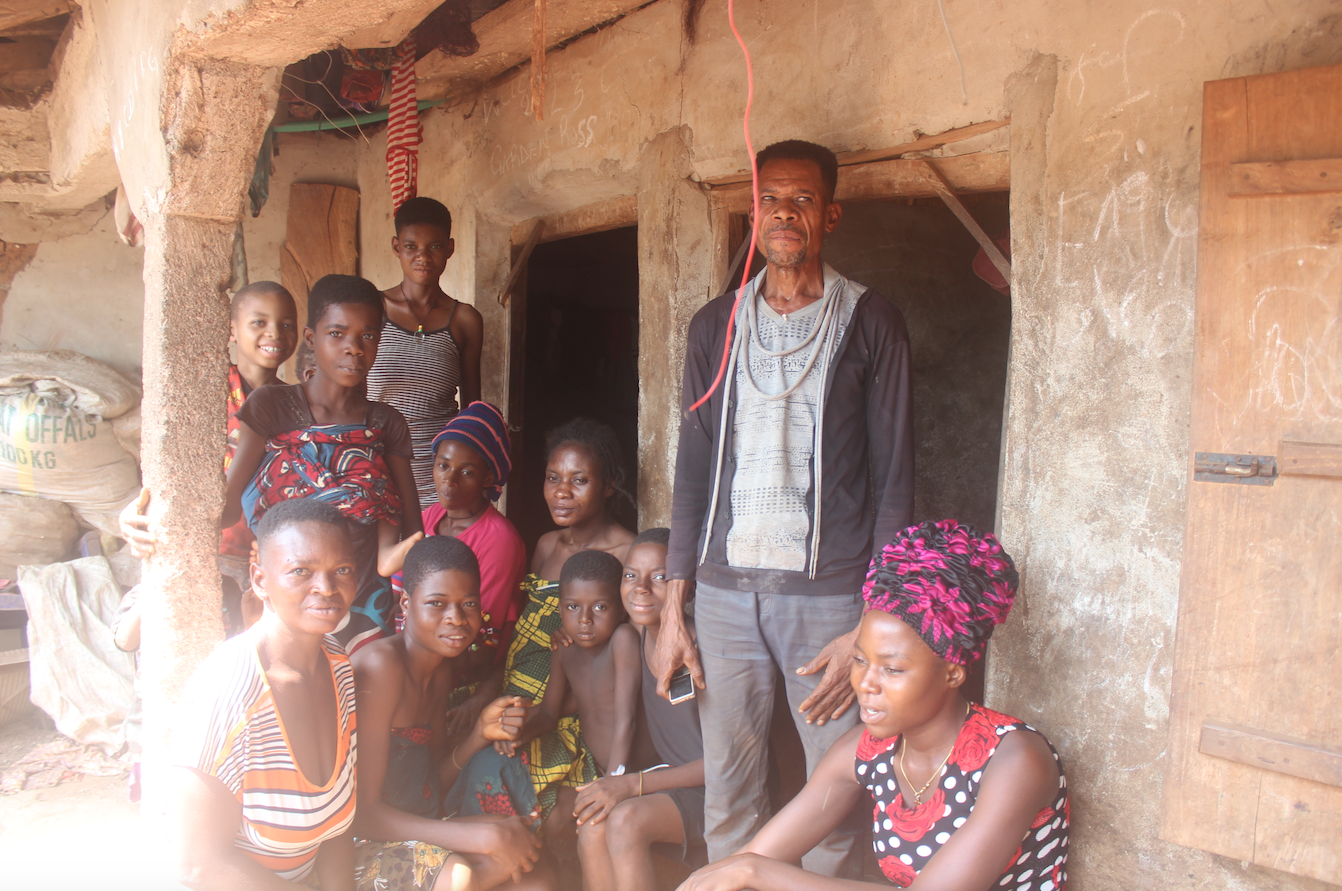
The government’s intervention has not produced the desired outcome. Nwaogiji who is a local farmer says he wants more security presence in the community so they could move freely and go to their farmlands.
After the first attacks between the two communities more than 15 years ago, the federal government deployed a team of soldiers to maintain peace in the area. The military team set up a temporary outpost where they make regular patrols but this initiative has not prevented the attacks.
When they lost their home and livelihood following the attacks, Nwaogiji and his family as well as other displaced members of the community moved into a public primary school as a temporary shelter. But when pupils of the school resumed, they were asked to vacate the property.
He currently lives in a makeshift IDPs camp in another community, some two kilometers away from his. The military outpost is close to the camp and Nwaogiji says that would make him and his family feel safe.
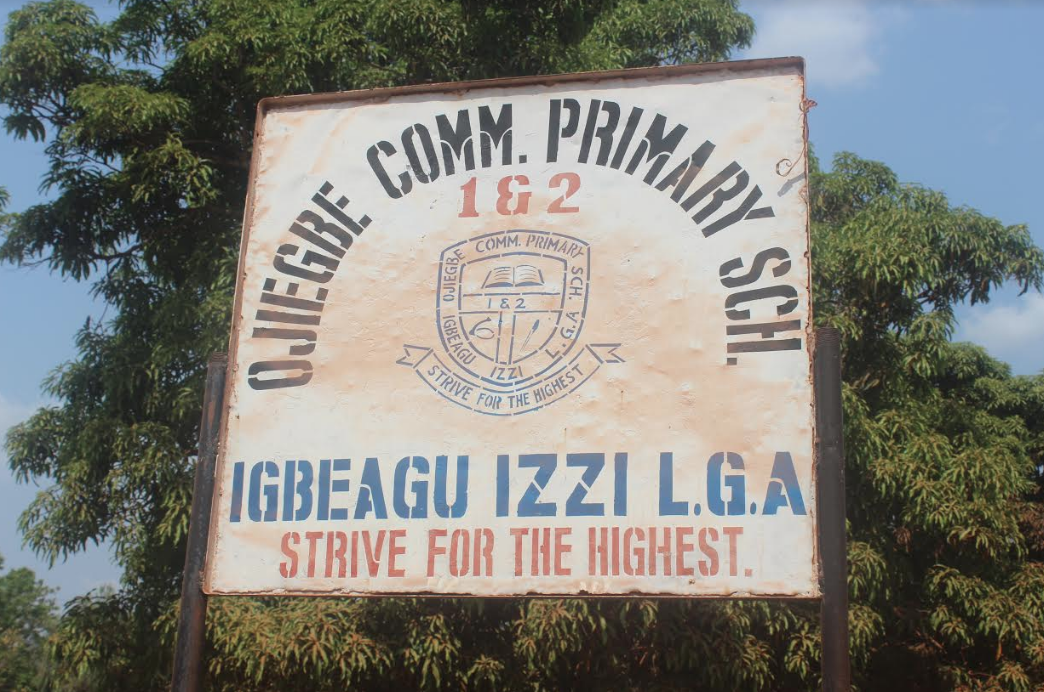
‘WE ARE STARVING’
The ongoing crisis has affected food production in the state as local farmers say they are scared of going back to their farmland and are in doubt of the government’s ability to protect them. Additionally, the COVID-19 pandemic has exacerbated the situation for the displaced villagers.
Ebenyi, who is a farmer and mason, says the attacks and fear of subsequent ones have left members of his community living in deplorable conditions without any government assistance.
Every week, Ebenyi stealthily comes back to pick some items and leave almost immediately. To provide for his sick father and siblings, Ebenyi would take the risk of working briefly on their farm, which is close to their compound, to harvest crops and prepare them for the family currently living with a relative in the city.
“You are scared of going back to your ancestral home because you don’t know what danger awaits you on the way,” he says. “You can see the whole place is empty, like a graveyard. But I have to come here to see what I can get so my father and siblings can eat. The pandemic has not allowed me to get a job. So, things have been very difficult for us.”
Nwaogiji says he and his large family survive by divine providence. “Hunger is about to kill us all because there is no place to get food at the moment and we are not able to go back to our farms,” he says. “Any small money we get, we use it to buy foodstuff from the market. Look at my family now, take for instance when you take twenty thousand to buy things from the market, it finishes after two days.”
The government claims relief intervention has been provided to the victims of the ongoing border crises in the state.
Paul Onwe, head of the State Emergency Management Agency (SEMA), said relief materials have been donated to some of the victims. Onwe is from one of the affected communities and his house is less than three kilometers from the scene of the attacks.
“The government is already taking care of the displaced people and individuals are cooperating to give some support and assistance to the displaced people,” he said. “The governor and his deputy have visited the places and made some donations as a form of respite.”
He acknowledged that the humanitarian toll of the attacks is high but the government is responding to the situation.
“I don’t think there is anything (complaints) lingering for now,” says Stanley Okoro Emegha, commissioner for security, border peace and conflict resolution. “For now, there is peace in those communities and the governor has provided relief materials to the victims on two occasions. So, all those people in the communities have been given adequate foodstuff and environment to dwell with.”
But dozens of displaced victims disagree. Ebenyi and Nwaogiji say they have not received adequate attention regarding their welfare from the government.
“Nothing has been provided for us,” Ebenyi says. “There are some families you would visit now and you would feel pity for them because they have nothing to eat.”
Uche Ali, a member of one of the affected communities, says the displacement and impact on the livelihood of the victims is disturbing.
“We are worried and our concern as a people is that there is no single government presence in terms of relief materials to the victims. Families, villages and communities at large have been abandoned,” he says. “We have been sending messages to them [government] about the poor conditions of people because the most affected are women and children but nothing has happened.”
On his part, Nwaogiji says “the government has only provided for us once with only rice and garri”, adding that the distribution happened in 2018. “The people all came here to get rice, some only got about two cups each, some people even got three cups and since then, nothing else.”
“We want to return home,” Nwaogiji adds. “This place is not our home, so we want peace to return so we can go back and continue our lives the way we were living before the attacks happened.”
QUEST FOR PEACE
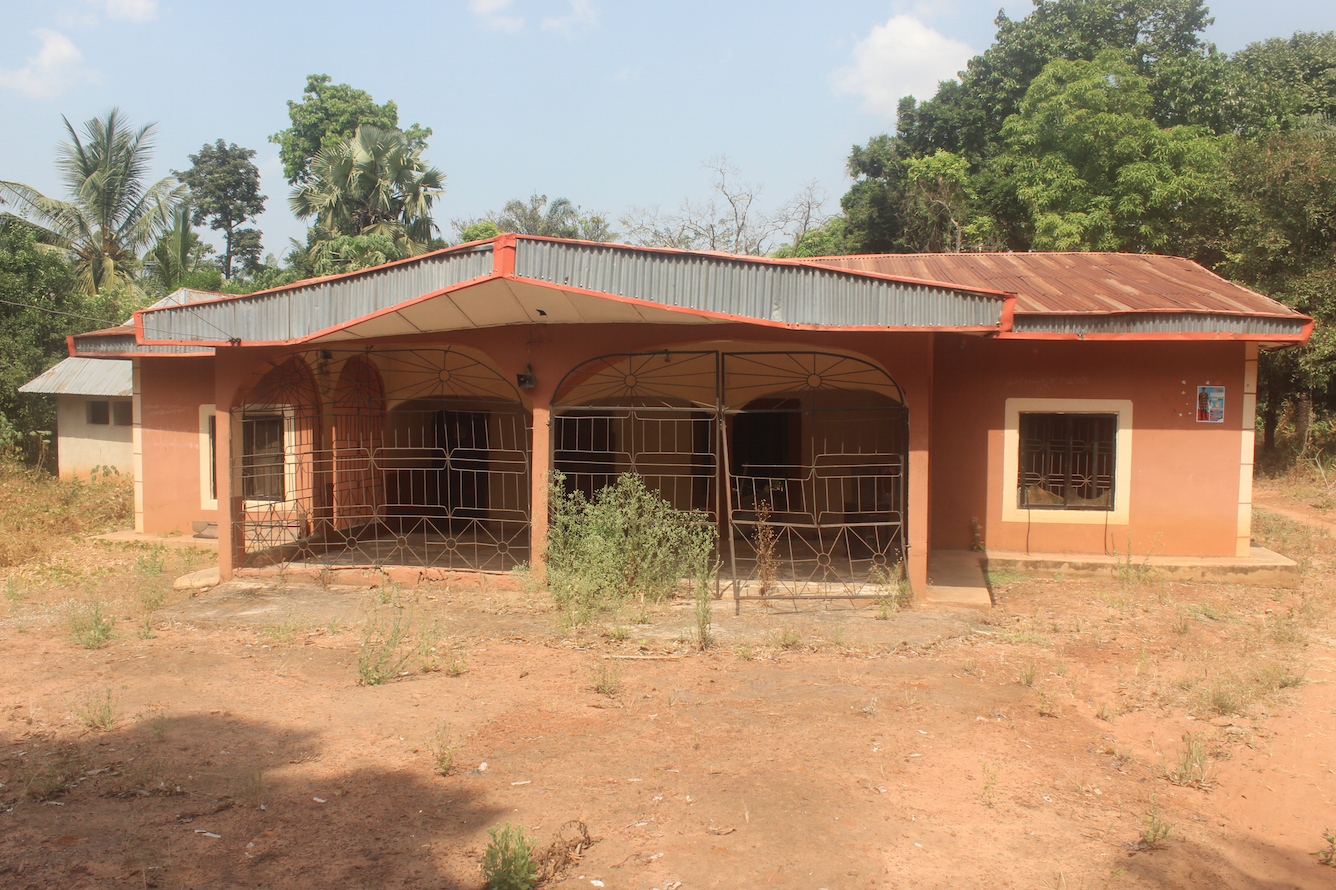
Members of the affected communities tell TheCable that a border demarcation between them and the Agila people will restore peace.
Last year, a joint-border peace committee from the concerned communities in Ebonyi and Benue states was created as part of initiatives to end the crisis. Members of the committee were drafted from representatives of the two communities.
“There is relative peace in the communities affected in the conflict,” says Ali, who is a youth leader and representative from one of the affected Ebonyi communities. Ali says since the last bloody attacks in March 2020, no crisis or confrontation has been recorded.
He says the goals of the committee include; restoring peace; reaching an agreement on border demarcation; stopping any farming activity across the borderlines, and making sure that the first aggressor is reported.
In September 2020, members of the committee visited the disputed border for assessment ahead of the planned demarcation. Ali says the communities have submitted their report and are waiting for the team from the National Boundary Commission to carry out the official demarcation.
The commission’s internal boundaries department is responsible for handling disputed boundary cases. The department also initiates intervention processes to take advantage of existing peace to define boundaries.
The border peace committee is domiciled under the office of the deputy governors of the two states. TheCable reached out to the deputy governor of Ebonyi state, Kelechi Igwe, for comments but got no response.
Ali, however, says the two deputy governors have been collaborating and holding meetings to make sure the crisis is settled and that peace is restored.
Emegha, the Ebonyi commissioner for security, was part of the delegation that went to Abuja for a solution to the crisis. He attributes the delay in effecting the demarcation to internal investigations on the report.
“They (boundary commission) would want to have a situation where the outcome would favour both parties after the demarcation,” he says. “I think in no distant time they will come up with that so the crisis can be resolved once and for all.”
About 20 people have been reportedly killed in attacks since 2019, with members of the Agila community alleged to have sometimes breached the peace by staging attacks.
Ebenyi claims the people of Agila town are usually the first to strike — and that because of this, hundreds who escaped are scared to return.
However, he remains hopeful that peace will return someday. But until the boundary commission carries out the demarcation, bloody attacks and counter-attacks may not completely end.
“I have lost two people I love to these needless attacks,” Ebenyi says. “My mother was a wonderful woman who was loved in the community. Now she is gone and we are still living in fear over future attacks. There is no peace here at the moment.”
This is a special investigative project by Cable Newspaper Journalism Foundation (CNJF) in partnership with TheCable, supported by the MacArthur Foundation. Published materials are not views of the MacArthur Foundation.
1 comments
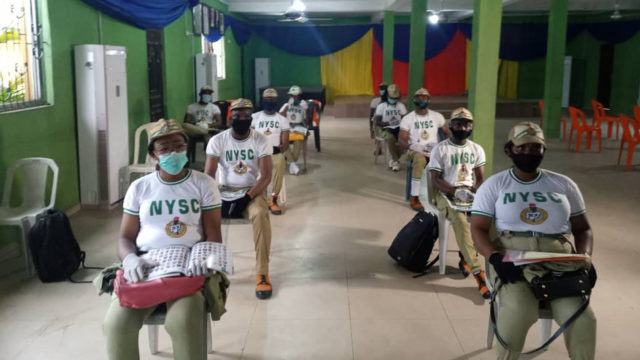

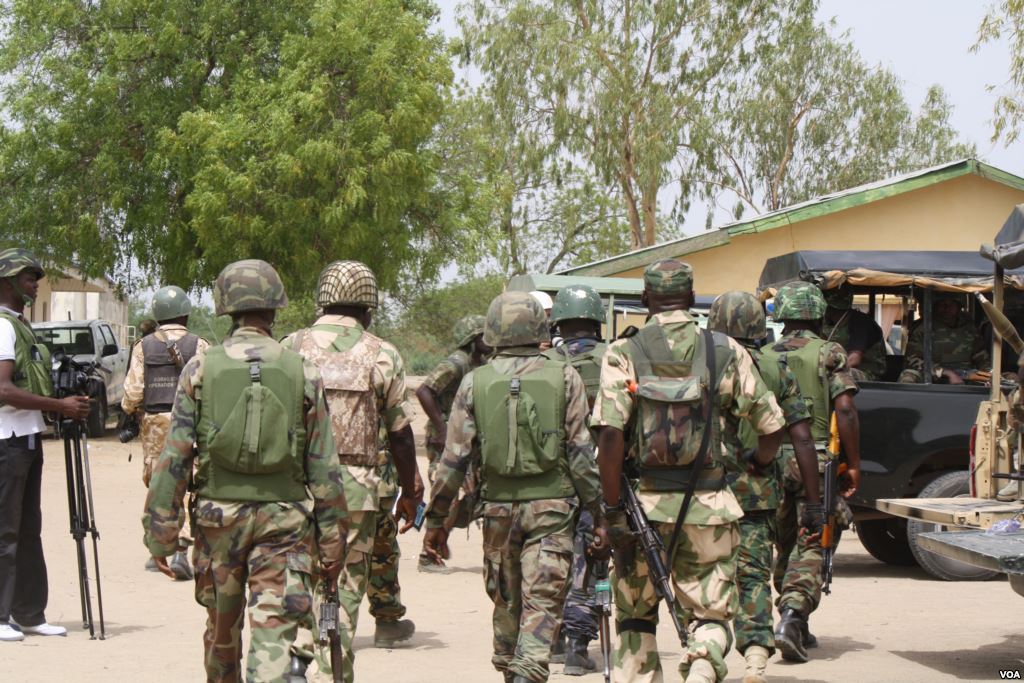


The demarcation should be done immediately.